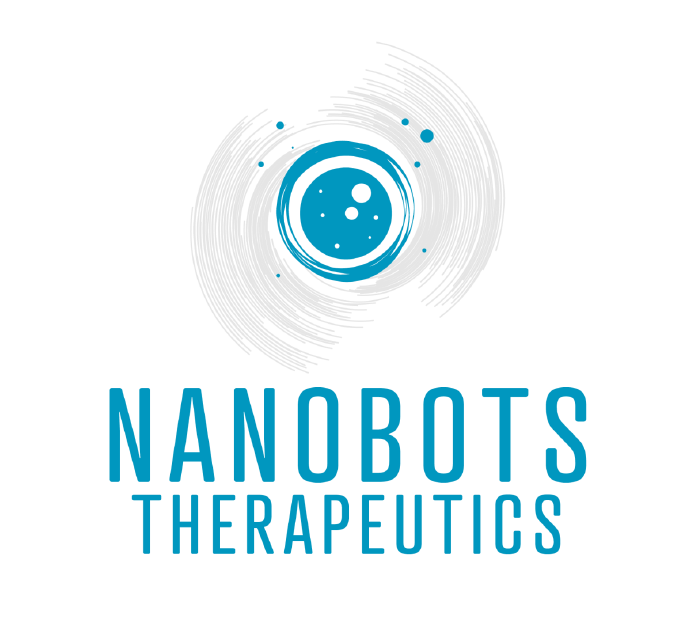La creació d’empreses spin-off és una de les vies més valuoses per portar la tecnologia i solucions de l’IBEC directament al mercat i, en definitiva, a la societat.
Aquesta ruta comercial requereix emprenedoria interna i externa i la capacitat d’atraure inversió externa. A l’IBEC fomentem l’emprenedoria i estem en contacte amb possibles finançadors.
Aquestes són les empreses que fins ara han estat spin-off de l’IBEC.
ROB SURGICAL SYSTEMS
Rob Surgical Systems is developing the Bitrack System, a surgical robotic system for use in minimally invasive laparoscopy surgery.

The Bitrack System is the result of a long track record of experience in robotic research done by Prof. Alicia Casals at IBEC together with researchers from Universitat Politècnica de Catalunya (UPC).
The BITRACK robotic system provides better flexibility, modularity and efficiency compared to existing robotic systems, thanks to its innovative design that facilitates work in sterile and cramped environments such as operating rooms. It offers the advantages of minimally invasive surgery (minimizing the risk of infection and bleeding and shortening the recovery period) and surgical robotics (it provides control and mobility of surgical instruments and improves vision and access to difficult places).
The prototype for the robot is already finished in terms of technology and will soon move into the clinical validation phase to gain approval for the European and US regulatory agencies and the markets.
SURGITRAINER
SurgiTrainer is a company founded by dedicated entrepreneurs in Prof. Alicia Casals’ Robotics group and a clinical counterpart from the research institute of Hospital de la Santa Creu i Sant Pau (IR-HSCSP), Dr. Ramon Rovira, dedicated to the development and production of training systems for endoscopic and laparoscopic surgery.

It is a spin-off of IBEC, IR-HSCSP and the Universitat Politècnica de Catalunya (UPC).
The platform has been evaluated by the European Society for Gynaecological Endoscopy and its training programme Gynaecological Endoscopic Surgical Education and Assessment (GESEA), and meets a recognized shortfall in the training and specialization of surgeons. The use of this kind of training reduces cost overruns in the health system and improves the quality of surgery. It reduces the risk to the patient, secures a faster recovery, and cuts the number of surgical re-interventions and the length of operations.
The company is finalizing an industrial prototype in collaboration with the European Society for Gynaecological Endoscopy (ESGE), with sales due to start very soon.
VITALA TECHNOLOGIES
Vitala Technologies is a IBEC’s spin off positioned in the market as an Analytical Service Provider.

This Analytics-as-a-Service (AaaS) business model combines cutting-edge technologies such as Organ-On-Chip (OOC) and Hyperpolarized- Magnetic Resonance imaging (HP-MRI) and advanced analytics such as AI to deliver deep insights into metabolic kinetics at the cellular and tissue level. Vitala brings together multiple new patented technologies to develop an efficient and ethical treatment analysis that will revolutionize drug discovery, medical diagnosis, and personalized medicine.
EODYNE
Eodyne is specialised in real-time interactive systems and technologies for virtual and augmented reality, ambient and wearable sensors, robotics, machine perception, cognitive processes, and user experience.

Eodyne has expertise in developing and validating technologies in different domains linked to the long track record of the SPECS-lab research areas of interest which include neurorehabilitation, research tools in neuroscience and humanities, human-robot interaction.
Eodyne’s flagship product is the Rehabilitation Gaming System (RGS), a science-based neuro-rehabilitation solution for the integrated treatment of deficits resulting from brain damage. RGS has been validated in several clinical studies and is used daily in a number of hospitals for the treatment of stroke patients.
NANOBOTS THERAPEUTICS
Nanobots Therapeutics aims at developing and commercializing a technological platform (Therapeutics-in-Motion) for different applications, including the implementation of innovative, more effective and safer strategies to treat cancer.

The company is a spin-off of IBEC and ICREA, and counts with the participation of other private founders. Its innovative technology has been developed by Dr. Samuel Sánchez, head of the Smart Nano-Bio Devices group at IBEC and academic founder of the company. The new technology is based on the development of nanocarriers decorated with different enzymes, which allows them to move in fluids containing specific substrates that act as the fuel for their movement. This platform enables the penetration and accumulation of different types of drugs in cancer cells by crossing biological barrier of cancer tissues. Its goal is to improve the safety and efficacy of current cancer treatments.
Initially, Nanobots Therapeutics will focus on a first program to treat non- muscle invasive bladder cancer (NMIBC).

